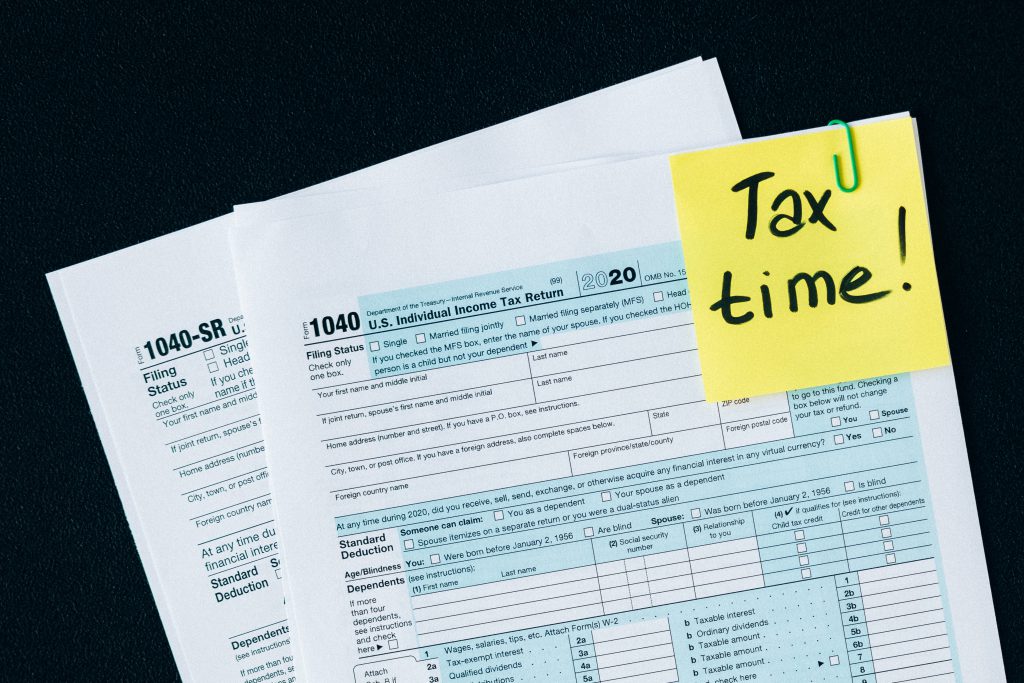Top Tax Preparation Tips
Although the IRS begins accepting electronic tax filings in January, doing your taxes can feel like an annual spring punishment. This year the official tax deadline has been extended to Monday, May 16 (from Monday, April 18), 2022. That gives you more time to get it right, hopefully with minimal stress, and get the most out of your filings.
First, take a look at a couple of money-saving factors to consider that are specific to 2022 filings.
Did You Receive Advance Child Tax Credit Payments (See Letter 6419)?
Last year a new law temporarily increased the credit amount from $2,000/child to $3,000/child ($3,600 for kids five and younger). Neither work requirements nor a permanent home is needed to claim them. Families who received advance payments must compare the advance child tax credit payments they received in 2021 with the amount of the child tax credit that they are allowed to claim on their 2021 tax return. IRS.gov provides instructions about how to calculate the amount for your family.
If you’re in this category, you might have received a Letter 6419 with the total amount of advance child tax credit payments you received in 2021. Keep this form with your tax records. In addition:
- Eligible families who did not get monthly advance payments in 2021 can still get a lump-sum payment.
- If you received less than the amount for which you’re eligible you can claim a credit for the remaining amount of child tax credit on your tax return.
- The above also applies to families who don’t normally need to file a return.
Do You Qualify for Additional Recovery Rebate Credit (See Letter 6475)?
If you didn’t qualify for the third economic impact (“stimulus”) payment – that started going out last March – or didn’t get the full amount, you may be eligible for a recovery rebate credit based on your 2021 tax information. If you think you qualify, you’ll need to file a 2021 tax return to claim the credit. The IRS website can help you calculate your correct 2021 recovery rebate credit amount when you file your tax return.
Don’t Overlook Exemptions and Deductions for Low-Income Illinoisans
Typically, if you live in Illinois your net income gets taxed at a flat rate of 4.95 percent. Federal tax rates, of course, can be much higher. If you’re concerned about how much you will owe this year, it’s important to remember that there are exemptions and deductions for multiple groups of taxpayers. Check out these two ways some individuals may lower their state income taxes:
- Earned Income Tax Credit (EITC). Some workers with a low or moderate income qualify for the EITC, which can get them a refund or reduce the amount of tax they owe.
- Property Tax Credit. If you are a homeowner, you may be entitled to a credit of up to 5 percent of your real estate taxes.
Other exemptions apply to people 65 or older, those who are legally blind, people in the military and other groups.
Follow IRS Tax Filing Advice
There is a plethora of tax filling advice online, including on the IRS website. We recommend that you do a little reading before diving in. That way you avoid the frustration of having to correct an error or start over. It also lets you know what documentation you’ll need this year. While there is a helpline, finding what you need online can help you avoid lengthy phone delays.
Here are some tax tips for this year, compliments of the IRS:
- Double-check your return for accuracy.
- Consider using e-file and direct deposit to avoid delays.
- Collect all relevant documents before preparing your return.
- Make sure you’ve withheld enough tax to avoid a tax bill. You may want to adjust your withholding if you owed taxes or received a large refund last year.
Tax laws are complicated. Don’t let that stop you from filing a return or from reaching out for help if you’re not sure which rules apply to you. If you own a business or need assistance for another reason, it may be worth it to consult with a professional.
Stop by South Suburban Currency Exchange (SSCE) for other Financial Assistance
Keeping your finance in order throughout the year will make it easier to file your taxes. For all your other financial needs, the services provided at South Suburban Currency Exchanges (SSCE) run the gamut – from auto title and registration to check cashing and automatic bill payment.
If you get a refund or just need to cash a check, SSCE can help. Our four locations are conveniently located, with a Richton Park location just off of I-57, two in Mokena and Park Forest, and another in fast-growing Frankfort. Stop by today!
